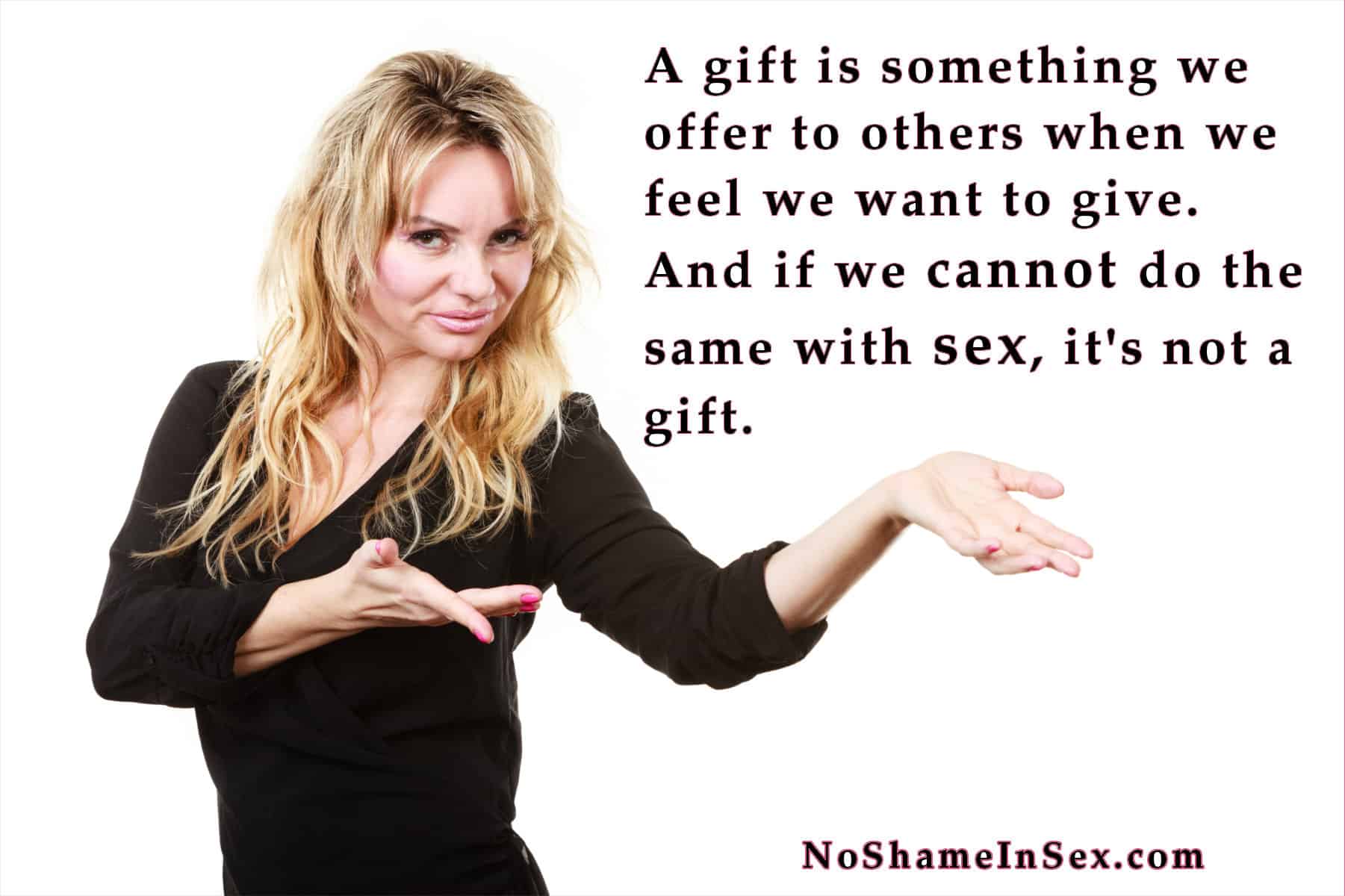
The impulse to a more relaxed and open sexuality is not merely instinctive, but also moral. We see this (re)emerging morality* in conflict with established customs, like the conflict illustrated in The Adventures of Huckleberry Finn when Huck contemplated turning in his friend Jim, an escaped slave. All his life, Huck had learned that it was a sin to help a slave escape. He also knew that a reward would be involved in turning Jim in. He even wrote a letter to inform the slave owner of Jim’s location, but, in the midst of his moral struggle, Huck decided to go against custom, whatever the cost, – “All right then, I’ll GO to hell.” – and tears up the letter. Remember that Twain wrote this book while surrounded by slavery. I’m not comparing freer love with freed slaves. I’m looking at the emotional conflict that we feel when rejecting what we have learned as right and good for something better. We take that step regardless of our fear and may second guess ourselves. A freer sexuality must face challenges from without and within.
If we venture into non-monogamy, be it open relationships, polyamory, or companionship sex, then we will likely see emotional upheaval in ourselves or others. If our lovers are not reckless and they don’t use violence, coercion, or deceit, then any troubling emotion that we feel is not a response to harm. Although not getting what we want gets mistaken for harm quite often.
Many might argue that the moral aspirations of non-monogamous relations often seem disappointing. That criticism rests on real observations, but it is not fatal to my point. The disappointments we may find in race relations are NOT arguments against trying to improve race relations. They are arguments to do better. Many people who took the side of the Union during the U.S. Civil War to abolish slavery would look quite shockingly racist to us today, The horror of interracial love is just one example of such prejudice. Yet, these Union supporters were on the side of a higher morality and played a vitally important role. Regardless of the differences between the freedoms illustrated above, the longing for more freedom to love others in different ways is not new. However, that longing for more and better choices remains a moral adventure wrought with highs and lows.
Those of us who find ourselves at home in non-monogamy may feel impatient with those individuals who find themselves plagued with possessiveness and its accompanying self-centered fear. Indeed, I think that we should disapprove of behaviors that inhibit or destroy worthwhile relations, but, at the same time, that disapproval goes too far if we lose sight of the moral impulse that inspires anyone to allow others freedom that we want for ourselves. It’s a moral imperative to recognize that the time of any lover’s life is limited, just like our own. A lover’s life is not given to spend in service to our motivations (e.g., fear, ambition, competition, vanity, or love of power).
Any moral impulse that breaks out of the seed shell of custom always begins as a minority. It’s like a sapling tree that may happen to have rooted in the shadow of an old tree of prejudice and fear. The difference between humans and trees is that humans can consciously choose to move out of that shadow of prejudice into the sunlight of unexplored alternatives. We choose to walk a new path, to NOT be governed by old beliefs. We make this choice in the same way that a smoker breaks that habit, by simply not smoking, even when he wants to. Remember, a smoker doesn’t always succeed on the first try or the sixth.
I wish that I could say that those individuals willing to do what it takes to emancipate themselves from love killing fears will enjoy relationship success, but I can’t. Just like many individuals who struggled against social prejudices, some never got to enjoy the fruits of their labor. Susan B. Anthony argued relentlessly for women’s suffrage and never once got to legally vote, but her efforts were not in vain and she helped every generation that followed her. I remember her when I remember that our willingness to consciously bring about change is not just about us and what we have to gain. It’s about a higher morality and any higher morality always extends its benefits to others.
By Todd Vickers
* Non-monogamy has been around for a long time. Monogamy probably began when humans made the transition from hunter gathers to pastoral and agricultural property owners.
